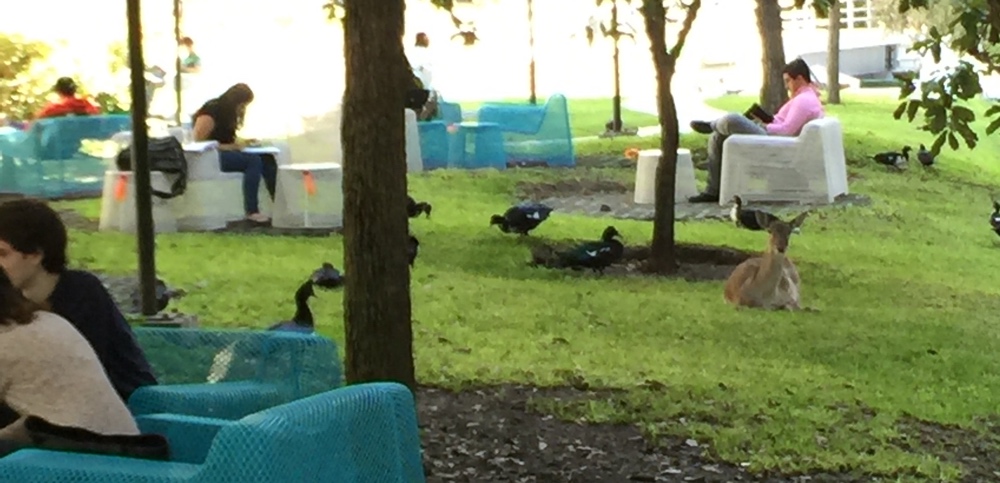Intensity and Innovation: Comparing Systems of Higher Ed, Part II
Two weeks ago I attended and presented at the annual economics symposium organized by the Economics Students Association of the Tecnológico de Monterrey (aka “Tec”). They could not have been more gracious hosts, and I met so many terrific students and scholars. I was also very impressed with the education these students are getting.
Tec is not a liberal arts college–It’s even more focused and intense than my alma mater (Rensselaer Polytechnic Institute). Students at Tec take six classes per semester for nine semesters and most are in their major. For example, economics majors take 5 semesters of probability theory, statistics, and econometrics. By contrast, Yale undergraduate economics majors are required to take exactly one semester of statistical methods. I teach that class and I pack a lot in, but we cover far less material than the Tec students. (For the record, many Yale econ majors do go on to take more econometrics, but they don’t have to.)
This intensity and focus has a cost: Less time for extra-curricular activities, less time for mind-expanding courses that aren’t obviously applicable to your career, and less time for sleep. Exposure to a wide range of ways of thinking about the world is valuable–Economists, Shakespeare scholars, psychologists, chemists and anthropologists attack problems in very different ways and exposure to those ways of thinking serves Yale students well in their careers and personal lives. That said, I think some Yale students would benefit from being pushed to take a more challenging course load even if it meant participating in fewer a capella singing groups.
Another strong tradition at Tec is the semester abroad. Most students take classes at another institution, usually outside Mexico for at least one semester and often two. In fact, Tec sends 5-10 students every year to Yale. I’ve had a few in my classes and they’ve excelled.
One of my favorite things about Tec is their willingness to try big new things. Last year, the university debuted “Semana i,” a week in the middle of the semester dedicated to imagination, innovation, and research (investigación). Most faculty created brand-new week-long courses for this. Reports on the first year from students and faculty I talked to were mixed. It was a lot of work for faculty and they were given very little direction from above. And they were told not to sacrifice any content from their regular courses even though they were giving up a week of course time. The content of the Semani i courses ranged from the serious (participation in real research projects) to the seemingly frivolous (craft beer brewing). I love the idea of Semani i, but these things take time to fine tune. It will be much easier for faculty the next time around, and I think student experiences will be more uniformly high quality if there is more oversight.
The Economics Students Association that invited me to Tec is amazing. They organize two conferences a year with outside speakers. They hold social events for economics majors throughout the year including a talent contest, dance classes, and a soccer tournament. They run a vibrant web site and Facebook page that keep their members informed. At the conference I attended, there were 200 students at almost every presentation, and they are now celebrating their 60th anniversary. Yale students have plenty of options for social activities, but they have nothing like this that binds together economics majors.
And finally, the last big difference I want to mention between Tec and really every other university I’ve ever seen has nothing to do with academics. It was actually the first thing I noticed when I arrived on campus. Someone high up clearly loves animals, because there are tame peacocks, Guinea fowl, exotic ducks, and even deer just wandering around everywhere. At any time, you can get your Chilaquiles, sit at a table outside and share a meal with friends of all species. I heartily approve of this kind of innovation and am already looking forward to my next visit.
